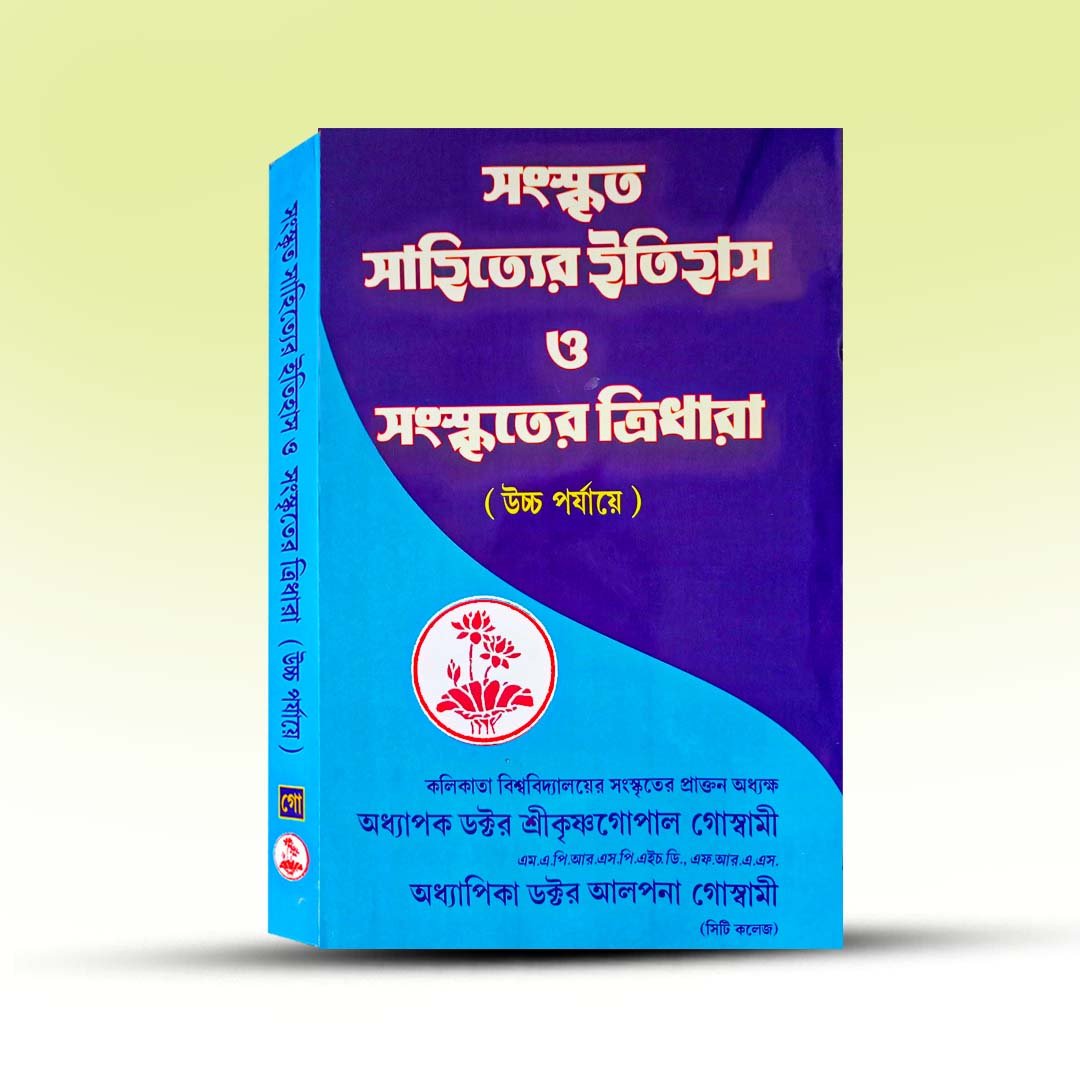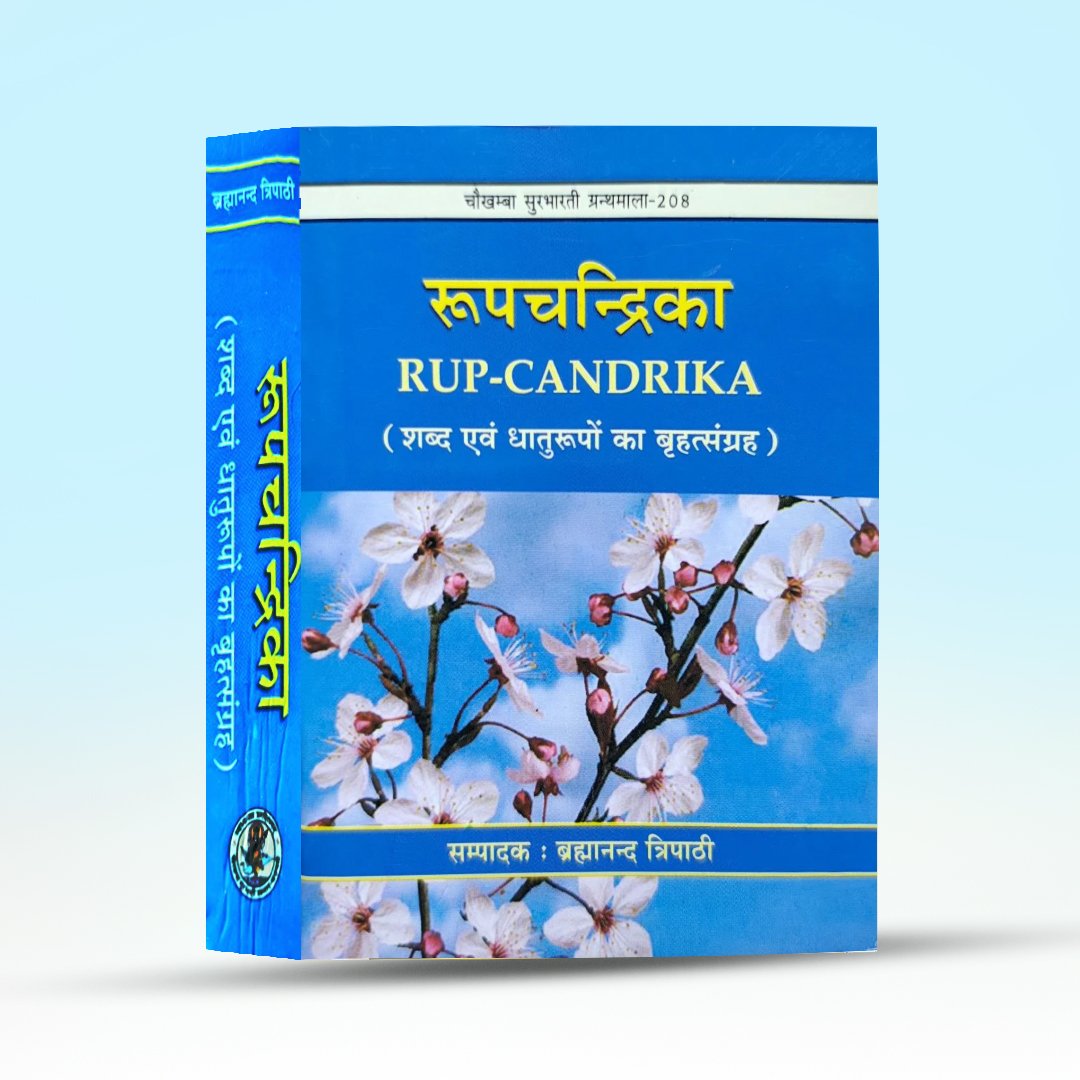Sanskrit Grammar Book - Byakaran Siddhanta Koumadi Karak Prakaran [Sahitya Niketan]
Byakaran Siddhanta Koumadi Karak Prakaran
Rs. 170.00
Rs. 200.00
15% Off
"Siddhanta Koumadi Karak Prakaran" is a Sanskrit grammar book edited by Dr. Sachhidananda Mukhopadhyay. This book explores the intricate aspects of grammar, focusing on essential components such as parts of Karak & Prakaran.
Quantity:
-
Binding Type :
Paperback
-
Published Date :
2023
-
Pages:
260
-
Weight:
225 (gms)
-
Language:
Bengali
-
Publishers:
-
Author:
-
Tags:
Share it on:

100% Secure
Payment

All India
Delivery

100% Genuine
Product


![Sanskrit Grammar Book - Byakaran Siddhanta Koumadi Karak Prakaran [Sahitya Niketan].jpg](https://boibipani.in/public/product/Sanskrit Grammar Book - Byakaran Siddhanta Koumadi Karak Prakaran [Sahitya Niketan].jpg)
![Sanskrit Grammar Book - Byakaran Siddhanta Koumudi Samash Prakaran [Sahitya Niketan].jpg](https://boibipani.in/public/product/Sanskrit Grammar Book - Byakaran Siddhanta Koumudi Samash Prakaran [Sahitya Niketan].jpg)



![Sanskrit Sahitya Shastra Book - Sahitya Darpan [Sanskrit Pustak Bhandar].jpg](https://boibipani.in/public/product/Sanskrit Sahitya Shastra Book - Sahitya Darpan [Sanskrit Pustak Bhandar].jpg)
![Sanskrit Sahitya Book - Abhigyanam Shakuntalam [Sanskrit Pustak Bhandar].jpg](https://boibipani.in/public/product/Sanskrit Sahitya Book - Abhigyanam Shakuntalam [Sanskrit Pustak Bhandar].jpg)
![Sanskrit Upanishad - Mahanarayan Upanishad [Dr Rakhesh Das].jpg](https://boibipani.in/public/product/Sanskrit Upanishad - Mahanarayan Upanishad [Dr Rakhesh Das].jpg)
![Sanskrit Grammar - Laghu Siddhanta Koumudi [Bipad Bhanjan Pal].jpg](https://boibipani.in/public/product/Sanskrit Grammar - Laghu Siddhanta Koumudi [Bipad Bhanjan Pal].jpg)

![Sanskrit Grammar - Sanskrita Byakaroner Upokramika O Anubadchandrika - [Sunil Kumar Jana].jpg](https://boibipani.in/public/product/Sanskrit Grammar - Sanskrita Byakaroner Upokramika O Anubadchandrika - [Sunil Kumar Jana].jpg)
